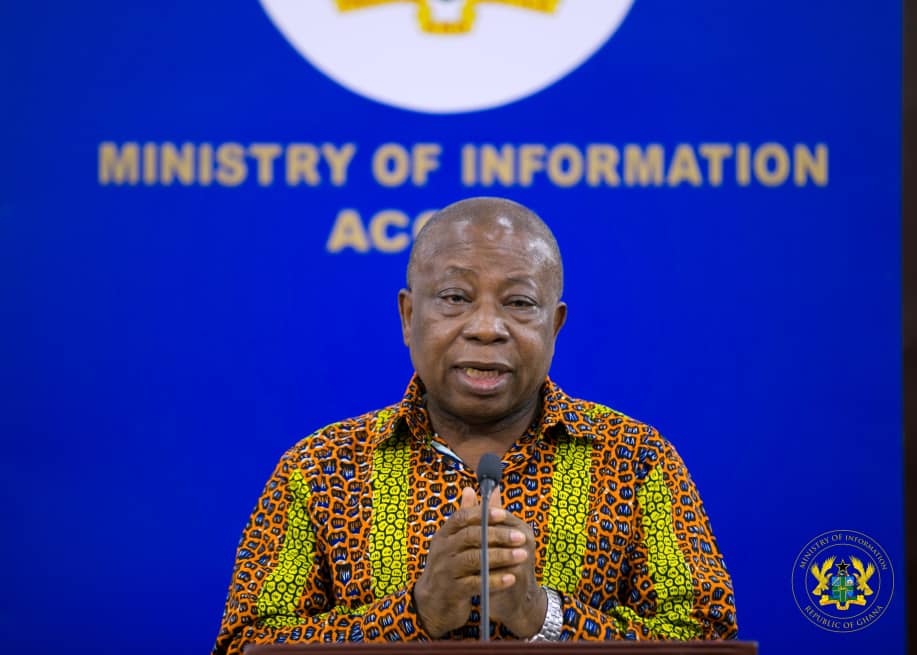
Ministry coordinates COVID-19 researches to respond to pandemic
The Ministry of Health (MoH) is to coordinate various researches being conducted by public universities and laboratories to inform the next line of action in dealing with the COVID-19 pandemic to nip any second wave of the pandemic in the bud.
To that effect, it has held a closed-door roundtable with heads of all public universities and research institutions to deliberate on how to commercialise the findings of the research conducted so far.
Addressing a brief ceremony before the roundtable was held in Accra yesterday, the Minister of Health, Mr Kwaku Agyemang-Manu, said one area that had been identified was how the MoH could work with the universities and research institutions to allow Ghana to benefit symbiotically from the researches going on at those institutions.
“I consider this meeting a roundtable of experience sharing that will help in taking decisions to avoid the second wave should that become the reality,” he said.
He said the meeting was to find ways in which stakeholders could collaborate and work together for the good of our country and dubbed the meeting: ‘Bringing the academic gowns to town’ for the sake of our shared humanity.
"How do we coordinate those pieces of information to support the response? Or simply put, how can the ‘academic gowns come to town’? Fortunately, I am informed that a number of researches have been conducted on this novel virus and we at the Ministry of Health need to be aware of the findings and recommendations to help make informed decisions at the highest level.
"As we debate the wearing of face masks and why people are not adhering to it and a possible vaccine deployment, the need for formative studies to understand the COVID-19 vaccine acceptability, community perceptions, concerns and trusted information sources will be needed," he said.
Vaccine communication/Adherence
Mr Agyemang-Manu said while the international community and the country worked towards developing a vaccine to help eradicate the global pandemic, research findings should inform the design of communication plans and messages that could be rolled out in preparation for the introduction of the COVID-19 vaccine.
“I wish to thank you all for availing yourselves for this meeting. Since about 10 p.m. on that fateful Thursday, 12th March, 2020 when I had the arduous task of announcing the two index cases of the COVID-19 in Ghana, our lives had never been the same.
“Ghana’s case history on the COVID-19 response seems to be doing well at containing the virus until a few days now when we seem to be increasing in the infections. Our response had been uniquely based on the three Ts — Test, Trace and Treat — and we never took it for granted. The numbers of new infections came as low as 25, but as of November 9, 198 new cases had been announced, with over 1,156 active cases,” he said.
He reiterated the national call on the public to adhere strictly to COVID-19 safety protocols, which had been identified as the only preventive and control mechanism in the absence of a vaccine and cure.
“Let us continue to wash our hands with soap under clean running water for at least 20 seconds. We should also imbibe the habit of often sanitising our hands with at least 70 per cent alcohol-based hand sanitiser; sneeze, cough and talk into face masks, especially in public, adhere to social distancing, among all the other protocols,” he said.
The Minister of Health said the effectiveness of the safety protocols was in majority of the population making a win against the COVID-19 a shared responsibility.
Academia
The Chairman of Vice-Chancellors, Ghana (V-CG) and Vice-Chancellor of the University of Health and Allied Sciences (UHAS), Prof. John Gyapong, said as academics, they cherished the opportunity to support with research because it facilitated ‘bringing the gown to town’.
He said since the virus arrived in the country in March 2020, universities had been at the forefront of the fight against it.
“The story of Ghana’s fight against the pandemic cannot be told without reference to the Noguchi Memorial Institute for Medical Research (NMIMR), the Kumasi Centre for Collaborative Research (KCCR) and, more recently, the UHAS.
“Unfortunately, many people do not realise that the NMIMR and the KCCR are part of the University of Ghana (UG) and the Kwame Nkrumah University of Science and Technology (KNUST), respectively,” he said.
Prof. Gyapong said recent publications of the West Africa Centre for Cell Biology of Infectious Pathogens (WACCBIP) of the UG on the characterisation of the virus and antibody levels in the community were also very notable.
He said the collaboration among the Presidency, the Ghana Academy of Arts and Sciences, mainly drawn from the universities, and the GHS in developing predictive models for the pandemic in Ghana was also very instructive.
“Thus we are very happy to contribute our quota to this all-important national agenda and, therefore, applaud the Ministry of Health for this initiative. It is our hope that this initiative will be backed by the necessary resources to make it a fruitful venture for Ghana,” he said.
Writer’s email:
